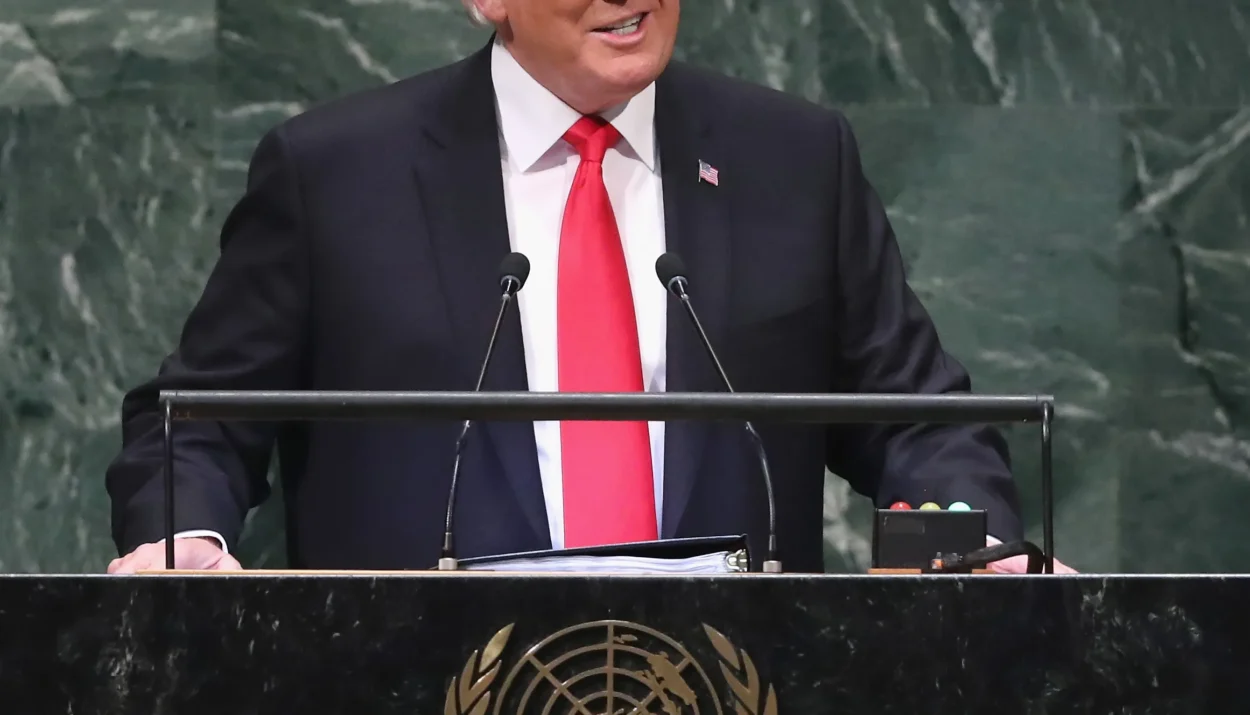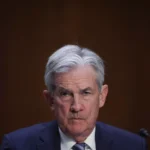President Donald Trump delivered a forceful, wide-ranging address to the United Nations General Assembly today, marking his return to the stage with criticisms of climate policy, immigration, global cooperation, and the performance of the UN itself. Below are the main points, direct statements, and what they could mean.
1. Country Critiques & Identity Alarm Bells
Trump didn’t hold back when talking to world leaders:
“Your countries are going to hell.” He made that claim while criticizing migration policies and accusing some nations of losing control over their borders.
He also said:
“We don’t want cows anymore… it seems like they want to kill all the cows” — a digression, but one that typified the tone: fiery, provocative, pushing cultural narratives.
The message: Trump is pushing a worldview where immigration, identity, and sovereignty are under threat, and he wants leaders to take notice.
2. NATO, Russia & Energy — Strong Demands
A few sharp lines stirred up headlines:
- On NATO: Trump said if Russian aircraft enter NATO airspace, they should be shot down.
- On Hungary: He learned that PM Viktor Orbán is still buying Russian oil. Trump said he plans to reach out and urge him to stop.
- On Europe in general: He criticized them for continuing energy ties with Russia, saying that by doing so, they are funding or supporting Russia’s war.
So part of the speech was Trump drawing a line: either cut Russian energy, enforce airspace integrity, or face consequences (economic, or reputational, or both).
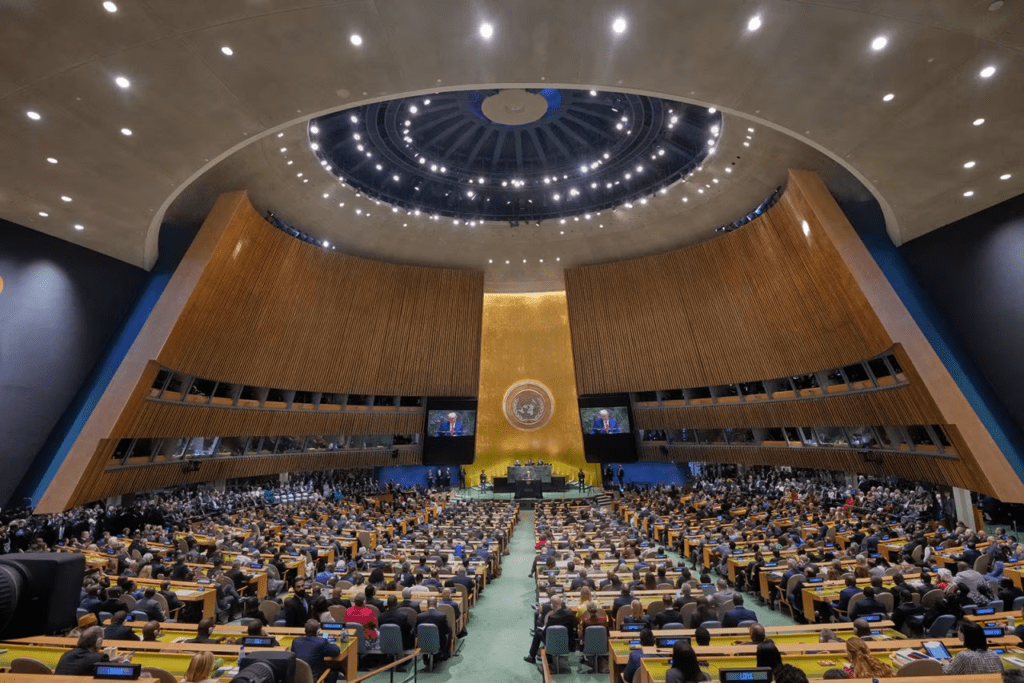
3. UN, Climate, & the “Green Scam”
A lot of Trump’s time at the UN was spent calling out institutions and global initiatives:
“What is the purpose of the United Nations?” he asked. “The U.N. has such tremendous potential … But it’s not even coming close to living up to that potential.”
On climate change:
He called it “the green energy scam” and the climate efforts a “con job,” criticizing renewable energy policies and accusing global climate narratives of hurting nations.
4. Palestine, Hostages & Global Conflict Framing
Trump pushed back on recognition of a Palestinian state, framing such recognition as a “reward for Hamas”. He called for the immediate release of hostages in Gaza.
He also had strong words on Ukraine:
“Yes, I do,” he said, when asked whether NATO should shoot down Russian aircraft violating airspace.
He criticized allies for still buying Russian energy, saying these policies are contradictory to support for Ukraine.
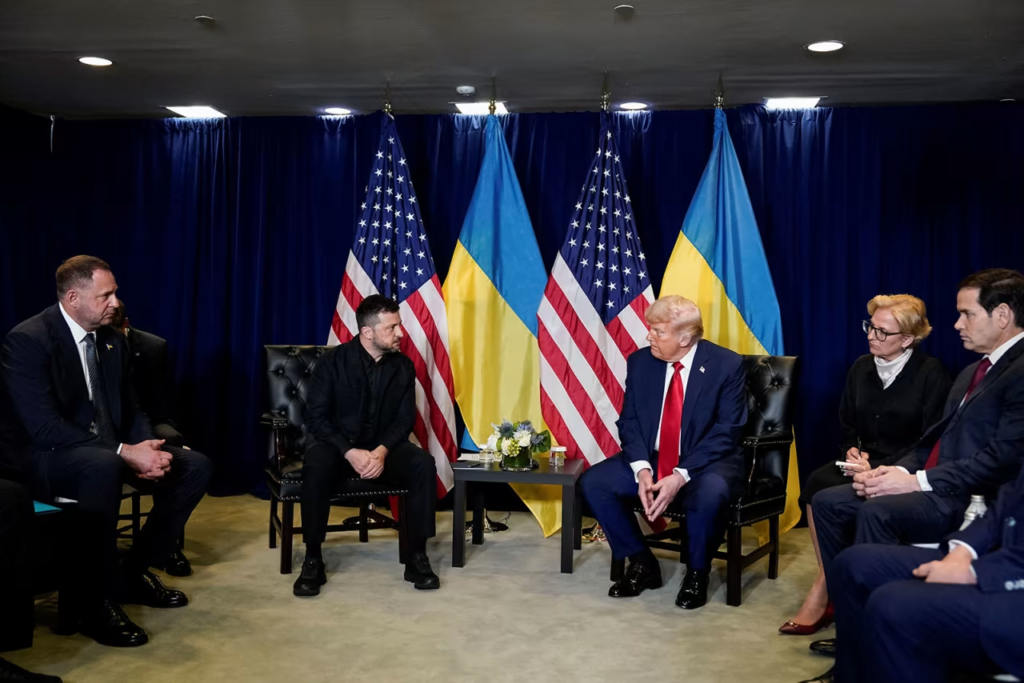
Trump Shifts Tone on Ukraine
One of the most striking developments at the UN General Assembly was Trump’s reversal on Ukraine. For months, he had pressed Kyiv to pursue peace talks, suggesting it couldn’t defeat Russia militarily. But on Tuesday, that changed.
Trump declared on Truth Social that after reassessing the military and economic landscape, “Ukraine, with the support of the European Union, is in a position to fight and WIN all of Ukraine back in its original form.”
He even mocked Moscow for “fighting aimlessly for three and a half years a War that should have taken a Real Military Power less than a week to win,” arguing that Russia’s economy is now straining under the conflict.
The shift marks the first time Trump has publicly said Ukraine could regain all the land Russia seized since 2014. He coupled this with a pledge to continue supplying weapons through NATO, saying the alliance could “do what they want with them.”
Zelensky’s Reaction
On the sidelines, Trump met with Ukrainian President Volodymyr Zelensky. While details were scarce, Zelensky called it “a very good meeting” and “the most substantive one” so far. He told Ukrainian media that it was too early to disclose specifics, but stressed the tone was constructive.
For Kyiv, Trump’s new rhetoric offers validation: Ukraine has long rejected any peace deal that required ceding territory. For Trump, it signals frustration with Putin’s unwillingness to negotiate — and a willingness to pivot closer to Europe’s line on supporting Ukraine’s full territorial recovery.
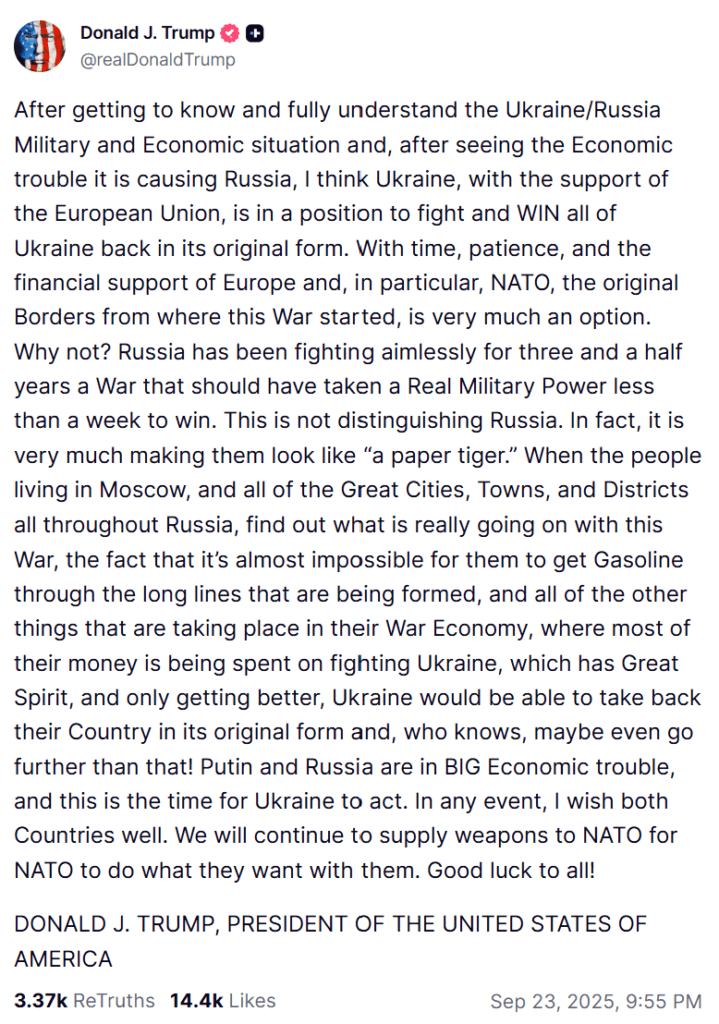
5. Boasts, Symbols & Style
Some lighter/weird moments too:
- Trump complained about issues with a broken escalator and a malfunctioning teleprompter: “These are the two things I got from the United Nations: a bad escalator and a bad teleprompter.”
- He claimed his administration has ended “seven wars” and contrasted himself with his predecessor, Joe Biden.
These remarks help set tone. They’re intended to be memorable (or provocative) — they stick with people afterward.
Why Trump’s UN Speech Matters
Trump’s address at the UN was more than just sharp rhetoric — it carried clear signals with global and domestic weight.
European Pressure Points: By hammering Europe over Russian energy dependence, migration, and climate policy, Trump pushed allies into the spotlight. His demand that NATO nations stop buying Russian oil and gas creates fresh strain on economies still reliant on those supplies.
UN’s Legitimacy Questioned: His repeated attacks on the UN’s relevance and effectiveness fuel a growing narrative of weakened multilateral institutions. By portraying the UN as ineffective, Trump positioned the US as willing to bypass traditional frameworks in favor of unilateral or bilateral moves.
Domestic Reinforcement: The themes were carefully chosen to resonate back home: sovereignty, border control, skepticism toward climate initiatives. These lines are campaign-ready and help shore up support among his political base.
Ukraine & Russia Energy Link: Perhaps most striking, Trump shifted tone on Ukraine, suggesting Kyiv could retake all occupied land. That stance, coupled with demands for Europe to cut Russian energy, strengthens alignment with Ukraine but raises the stakes for European economies adjusting to life without Russian imports.
In short, the speech blended international warnings with domestic messaging — a mix designed to pressure allies abroad while energizing supporters at home.
Today’s UN address was one of sharp rhetoric more than policy announcements: Trump used the stage to frame global issues through his lens of sovereignty, tradition, and scepticism of global institutions. His speech underscores growing tensions over migration, climate change, and energy, and signals that these will be front and center in U.S. diplomacy going forward, whether with allies or critics.


